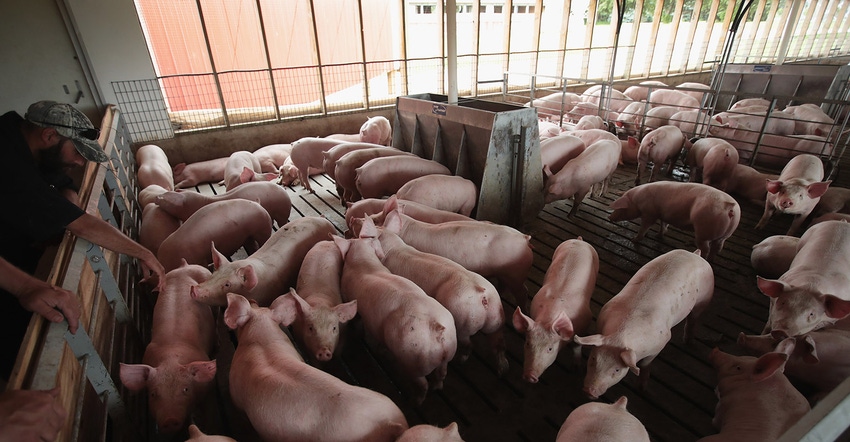June 5, 2019

Rules amending EPA’s emergency release notification regulations have been signed by Environmental Protection Agency Administrator Andrew Wheeler. The amendments clarify that reporting of air emissions from animal waste at farms is not required under the Emergency Planning and Community Right-to-Know Act, or EPCRA.
“This final rule provides clarity and certainty to the regulated community that animal waste emissions from farms do not need to be reported under EPCRA,” Wheeler said. “This action eliminates an onerous reporting requirement and allows emergency responders and farmers to focus on protecting the public and feeding the nation, not routine animal waste emissions.”
“The goal of emergency response officials and local emergency planning committees is to prepare communities for emergency threats related to hazardous chemical releases. Such emergency threats do not include 'best guess' reporting on day-to-day emissions on farms and animal operations,” said National Association of SARA Title III Program Officials President Tim Gablehouse. “The focus of LEPCs should be and is on chemical hazards that present meaningful risk of harm to community members and first responders. We look forward to working on enhanced coordination and cooperation between all community members to improve preparedness for hazardous chemical releases.”
The changes to emergency release reporting regulations reflect the existing relationship between EPCRA and the Comprehensive Environmental Response, Compensation, and Liability Act and provide consistency between the two environmental laws.
The Fair Agricultural Reporting Method, or FARM Act, fixed a problem created in April 2017 when a U.S. Court of Appeals rejected a 2008 EPA rule that exempted farmers from reporting routine farm emissions under the Comprehensive Environmental Response, Compensation and Liability Act, or CERCLA. Commonly known as the "Superfund Law," CERCLA is used primarily to clean hazardous waste sites but also includes a mandatory federal reporting component.
The appeals court ruling would have forced tens of thousands of livestock farmers to "guesstimate" and report the emissions from manure on their farms to the U.S. Coast Guard's National Response Center and subjected them to citizen lawsuits from activist groups.
EPA's new rule exempts farmers from having to make reports to state and local first responders under the federal Emergency Planning and Community Right-to-Know Act, or EPCRA – an adjunct to CERCLA – that they have "hazardous" emissions on their farms. The state and local first responders have been clear that they consider these reports unnecessary and burdensome. Instead, they prefer open lines of communication and information sharing at the local level with farmers.
What’s the reaction?
Sen. Pat Roberts, R-Kansas, Senate Agriculture Committee chairman, said farmers and ranchers were never intended to be subject to this reporting requirement, but without Congressional action, livestock and poultry farms with roughly 200 head of cattle or a pig farm with two swine finishing barns would have potentially been subject to the reporting requirement.
“I’m pleased the EPA has acted to give further certainty to farmers, ranchers, and local emergency responders who were never meant to be subject to these onerous reporting requirements,” Roberts said.
“We are pleased with the outcome of EPA’s painstaking efforts,” said Jim Mulhern, NMPF president and CEO. “This final rule codifies what’s been the right thing to do all along.”
"Today's rule is the final piece in the implementation of the FARM Act, which passed Congress with overwhelming bipartisan support last year and eliminated the need for livestock farmers to estimate and report to the federal government emissions from the natural breakdown of manure," said National Pork Producers Council President David Herring, and a pork producer from Lillington, North Carolina. "That bipartisan measure was approved because it was unnecessary and impractical for farmers to waste time and resources alerting government agencies that there are livestock on farms."
You can read the final rule here: https://www.epa.gov/epcra/amendment-emergency-release-notification-regulations-reporting-exemption-air-emissions-animal
Source: EPA, Office of Sen. Pat Roberts, NMPF, NPPC, which is solely responsible for the information provided and is wholly owned by the source. Informa Business Media and all its subsidiaries are not responsible for any of the content contained in this information asset.
You May Also Like




